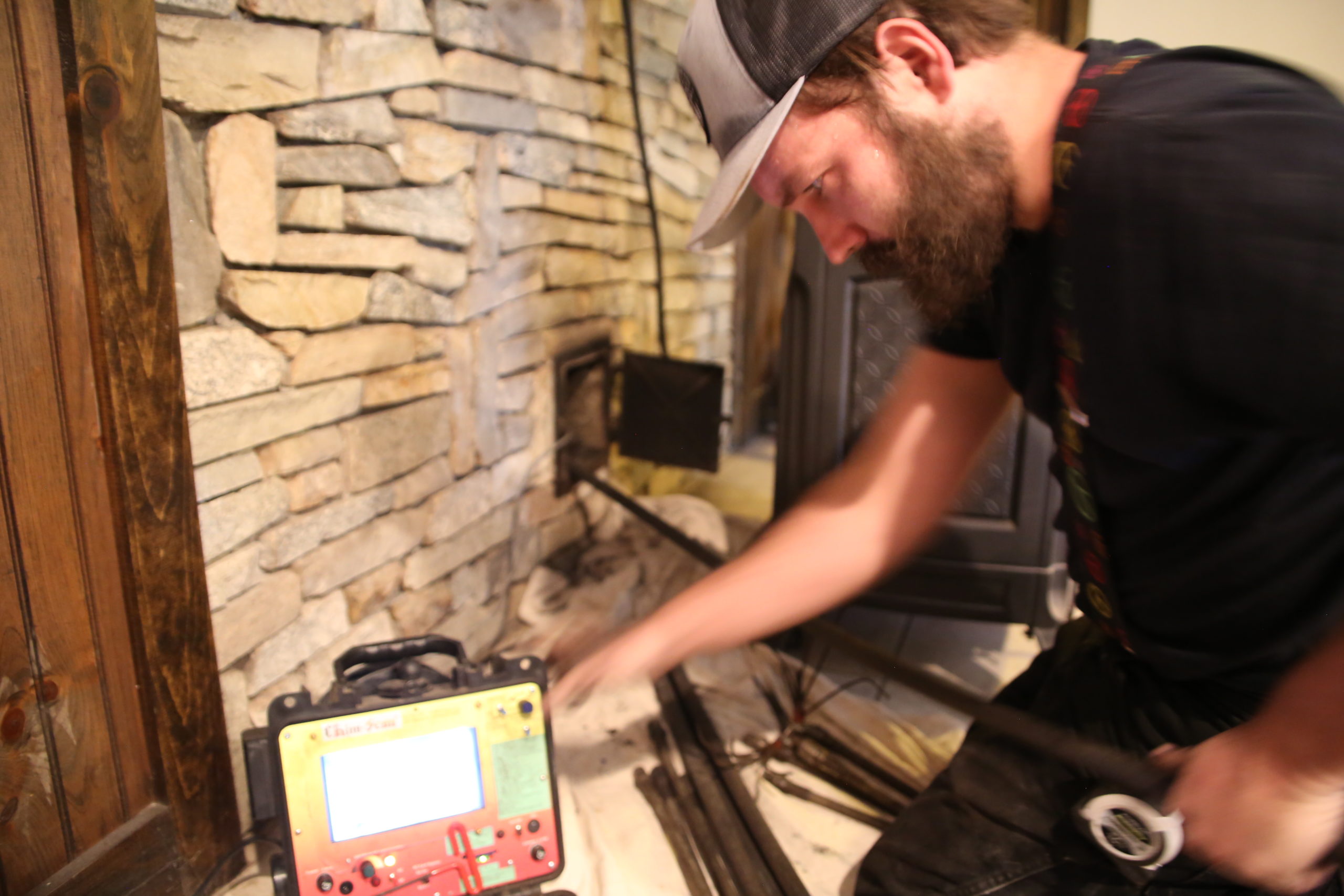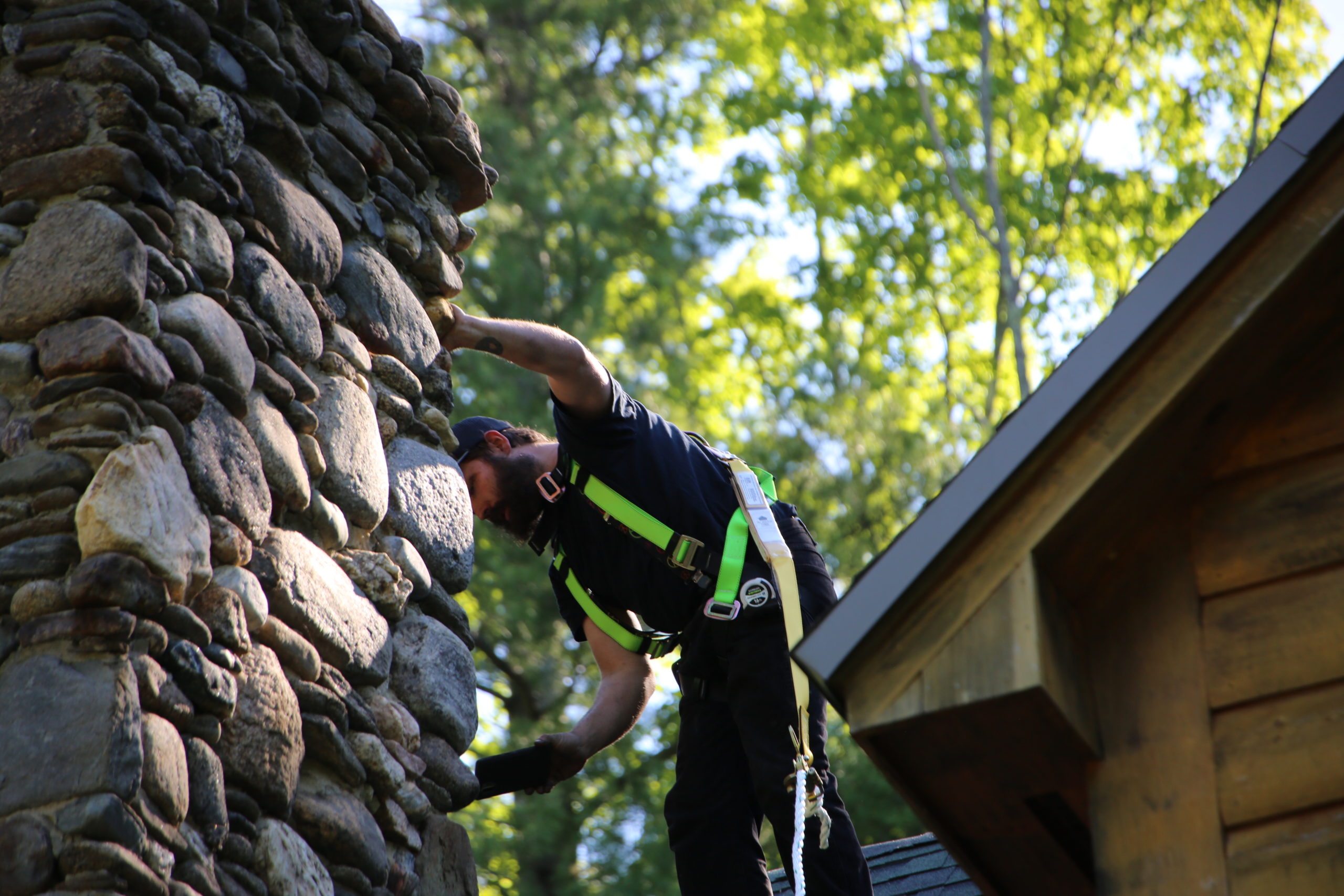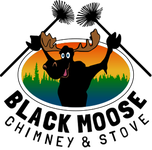A home inspection is a normal part of transferring the ownership of a home from one party to another. Part of a home inspection includes the chimney and fireplace. This is a good idea, because small problems with these structures can lead to big problems down the line.
Unfortunately, very few real estate home inspectors are thoroughly trained on the workings of chimneys and fireplaces. They can do a basic “look-over” inspection to ensure than nothing is obviously damaged or broken, but most of them can’t be as meticulous as the job requires. That’s why when you’re buying or selling a home, you need to bring in a certified, professional chimney inspector.
 Certified real estate chimney inspections
Certified real estate chimney inspections
The Chimney Safety Institute of America (CSIA) recommends three different “levels” of chimney inspection. A Level 2 inspection is geared toward examining the chimney system during the sale of a home.
Level 2 chimney inspections (also referred to as “real estate chimney inspections”) go a further into the process than the basic Level 1 inspection, which should be routinely performed once a year.
Six important areas checked during a real estate chimney inspection include:
- Internal damage: Chimney inspectors use video imaging technology to see all the way down into your flue. They can spot signs of damage from a previous chimney fire, cracks or breaks in the chimney liner, masonry issues and more.
- Creosote and flue obstructions: Part of the flue inspection will be checking for built-up creosote and debris that hinders smoke drafting. Creosote is highly flammable and is added to the flue each time a wood fire burns. Obstructions such as tree debris and the nests of small animals can cause smoke and deadly carbon monoxide to back up into the home.
- Exterior masonry: Inspectors will look closely at the bricks and mortar that make up your chimney. They want to determine if there are any obvious or early signs of structural problems. Chimney masonry can suffer damage from lightning strikes, earthquakes, major hail storms, extreme weather temperatures and normal house-settling.
- Water damage: During a real estate chimney inspection, the technician is watching for signs that water has infiltrated the system. Clues include white staining on the exterior masonry, musty odors coming from the fireplace, decomposed bricks and mortar, water in the firebox and more.
- Chimney crown & chimney cap: These two components are at the top of the chimney and serve to protect the structure. Chimney caps keep water out of the flue openings, and cement chimney crowns protect the entire top of the chimney (aside from the flue openings) as well as the bricks below the crown. Caps and crowns must be in good shape in order to do their jobs.
- Roof flashing: Chimney inspectors know that damaged or warped flashing that seals the gap between the roof and the chimney can allow water to run down into the home and cause rotting and mold growth.
 After the chimney inspection
After the chimney inspection
When the inspection is finished, your technician will present you with the findings and make recommendations for any repair work that is needed. When the repairs are completed, you’ll have the peace of mind that comes from knowing your chimney and fireplace system has been thoroughly checked out and signed off on.
Are you involved with the transfer of a home and need a certified chimney inspection as part of the process? Black Moose Chimney & Stove of Antrim, NH, is on call year-round for Level 2 real estate chimney inspections – and all other inspections, repair work and chimney cleaning. Make an appointment or learn more about our services by calling (603) 525-7905.


